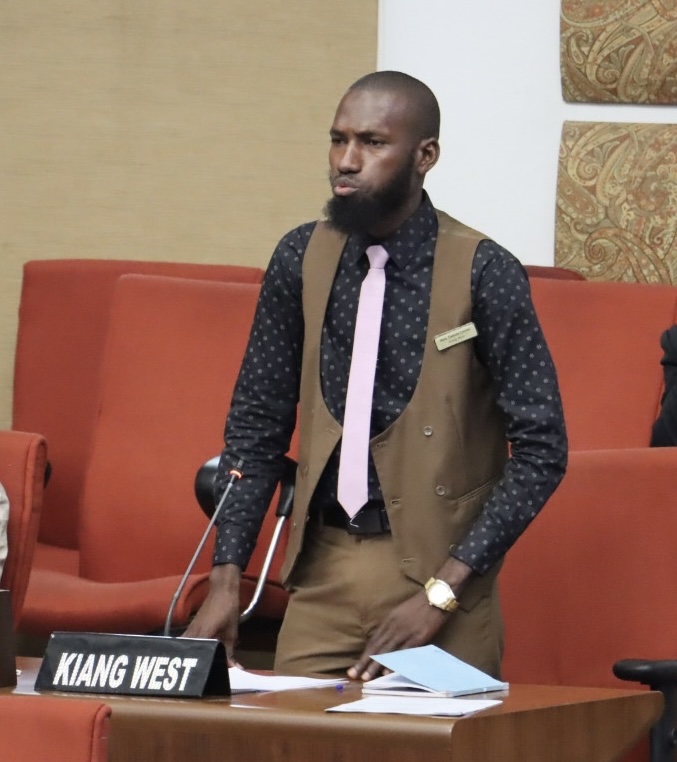
Hon. Lamin Ceesay, National Assembly Member For Kiang West.
By Landing Ceesay
The National Assembly Member (NAM) for Kiang West Constituency, Hon. Lamin Ceesay, responded to President Barrow’s statement on the National Audit Office’s (NAO) reports.
“A statement coming from anybody, either a parliamentarian, executive, or citizen, to discredit the National Audit Office is not acceptable. It is very disappointing to hear this from an executive to say the national audit office reports are opinions, and they could be biased. This constitution still gives you powers that if they are not doing their job diligently, you remove them. The President has those powers.
“If they are not doing their work diligently, this constitution has mandated you the president, and it gives you the power to remove them from office. But publicly call them their audit reports opinions and could be biased. If they are biased in given reports, which means they violated their oath of office and this is a violation of this constitution. If the audit office does that, you, as the President, have every mandate to remove them when they do that, but not to sit in public and say their audit opinion could be biased. You are promoting corruption. This is unacceptable,” Hon. Ceesay said.
The Kiang West NAM further asked President Barrow to apologize to Gambians because “the supremacy of the Constitution is paramount.”
Hon. Ceesay made these at the Parliament on Thursday during the adjournment debate of the first extraordinary session of the sixth legislature for the year 2023.
It could be recalled that a few weeks ago, the President in an interview with Star TV said reports from the National Audit Office are mere opinions, and they could be biased.
Hon. Ceesay further cited section 158 of the 1997 Constitution, which gives the power to the President to remove the Auditor General from Office if he or she violates the constitution.
“Honorable Speaker, Good governance, rule of law, and supremacy of the law are very important pillars of good governance. Audit reports are important instruments to ensure good governance in any democratic government. Audit reports are important documents. I want to refer to this August assembly’s honorable speaker with your permission.
“The Constitution of the Republic of the Gambia 1997 constitution in section 158 recognizes the Auditor General appointment. It says there shall be an Auditor General, whose office shall be an office of public service. The Constitution tells us that there shall be an auditor general, whose office shall be an office in the public service. Section 159 of the same Constitution
recognizes the establishment of the National Audit Office. It says there shall be a National Audit Office in the public service, of which the Auditor General shall be the head,” he told the NAMs.
The outspoken NAM for Kiang West further cited Section 14 of the National Audit Office Act 2015 which gives authority and powers to the Auditor General.
Hon. Ceesay said the NAO Act stated that “in the exercise of his or her functions, the Auditor General shall not be subject to the direction or control of any other person or authority.”
Hon. Ceesay said no matter what kind of statement is made against them, the NAO will not be controlled by anybody.
He said this is because their Act has clearly stated that they will not be subject to the control or direction of anybody.
“They are given autonomy, they are independent. So therefore, their exercise and operations must be independent, and impartial, so that they can serve effectively and efficiently. Hon. Speaker, the G of the same section of the Act says the Auditor General may disallow any item or expenditure which is contrary to law. The Auditor General has the power from the Act which was enacted in this Parliament to disallow that we give them that power,” Hon. Ceesay said.
Hon. Ceesay then called for mutual respect between government institutions for the best interest of the country.
“Hon. Speaker, government institutions should respect each other. We have to recognize the legitimacy of institutions, as ministers should recognize the legitimacy of this institution and our authority. In the same way, we should recognize theirs as well as other institutions,” he said.

